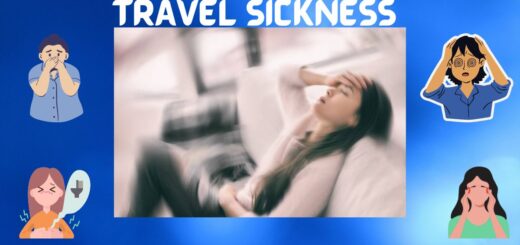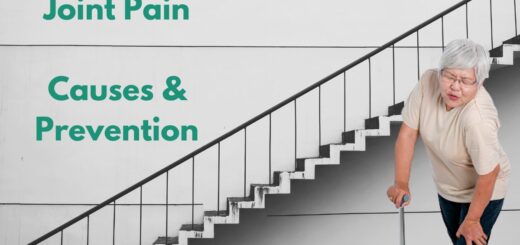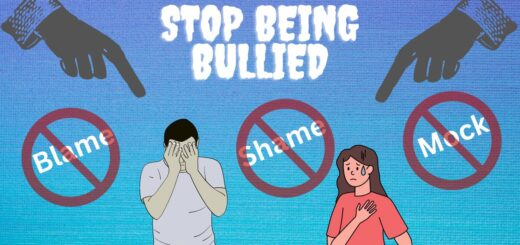Why Does My Chest Hurt Before My Periods?
What happens to our body during periods?
When it comes to our bodies and periods, there’s a lot we don’t know. For example, did you know that periods chest pain is actually a thing?
Yep, it’s true! Many women experience chest pain during their menstrual cycle, and it can be pretty severe.
So, what causes this pain? Well, it’s thought to be caused by the release of prostaglandins, which are hormones that help to shed the uterine lining.
Prostaglandins can also cause other symptoms like cramps, bloating, and diarrhea.
So, there you have it! Now you know that chest pain during periods is a real thing and that it can be caused by the release of prostaglandins.
I am writing this because I freaked out the first time I got chest pain. I literally thought that I’m getting a heart attack because of all the heartburn and sweating. Gladly I had my mom by my side and she’s the one who educated me about the pre-menstrual symptoms. If you get a not so severe chest pain before or during periods, and if it is not constant, you can try some self-treatments like applying heat, essential oil massage, and changing food habits to ease the pain. So don’t freak out unless you have unbearable pain for a prolonged time.
Chest Pain Before Your Period: What You Should Know?
If you’re experiencing chest pain before your period, it’s important to know that you’re not alone. Many women experience this symptom in the days leading up to their period, and it can be caused by a variety of factors. The most common cause of chest pain before your period is PMS or premenstrual syndrome. This is a condition that affects many women and can cause a variety of symptoms, including chest pain.
There are a few possible explanations for why you might experience chest pain before your period. One possibility is that the pain is due to your breasts swelling and becoming tender as your body prepares for your period. This is caused by the hormones your body is producing and is completely normal. Another possibility is that the pain is caused by premenstrual syndrome (PMS). PMS is a collection of symptoms that some women experience in the days leading up to their period. These symptoms can include mood swings, bloating, and breast tenderness. If the pain is severe or accompanied by other symptoms, such as shortness of breath, you should see a doctor to rule out other possible causes of chest pain.
Other potential causes of chest pain before your period include:
– Breast tenderness: This is a common symptom of PMS and can cause pain in the breasts.
– Bloating: This is another common symptom of PMS that can cause abdominal pain and discomfort, which can radiate to the chest.
– Menstrual cramps: These can also cause pain in the abdomen and chest.
If you’re experiencing chest pain before your period, it’s important to see your doctor to rule out any other potential causes. Once any underlying medical conditions have been ruled out, there are a few things you can do to help relieve your symptoms. Over-the-counter pain relievers can help to ease pain and discomfort. You can also try applying a heating pad to the affected area.
Other reasons for periods chest pain could be:
– Breast tissue tenderness: This is often the result of changes in hormone levels during your menstrual cycle. The pain is usually dull and throbbing and may be felt in one or both breasts.
– Costochondritis: This is a condition that causes inflammation of the cartilage that connects your ribs to your breastbone. The pain is usually sharp and worse when you take a deep breath.
– Muscle strain: The pain from a muscle strain may be caused by lifting something heavy or by sudden movements. It is usually a dull, aching pain.
If your chest pain is severe, your doctor may prescribe medication to help relieve your symptoms.
Common Symptoms of Chest Pain Before Periods:
There are several possible symptoms of chest pain before periods, and these can vary depending on the individual. It can occur anywhere from a week to a few days before your period starts. The pain may be sharp or dull and can be accompanied by other symptoms such as breast tenderness, fatigue, mood swings, and bloating. Some common symptoms include:
– pain in the center or left side of the chest
– pain that radiates to the left arm or jaw
– pain that is worse with deep breathing
– pain that is worse with activity
– shortness of breath
– sore breast and nipple pain
– unusual sweating
– anxiety
– fatigue
If you are experiencing any of these symptoms, it is important to see a doctor to rule out any potential medical causes.
Hormonal vs. Heart Disease: What’s Causing Your Chest Pain?
If you’re experiencing chest pain before your period, it’s important to pay attention to your body and see if the pain is coming and going, or if it’s a more steady pain. If the pain is more steady, it could be a sign of heart disease. If the pain is coming and going, it’s likely due to hormonal changes and is nothing to worry about. However, if you’re concerned about either type of chest pain, it’s always best to see a doctor to get checked out.
Easing Chest Pain and Burning Before Your Period
Almost every woman experiences some kind of chest pain or burning sensation before or during her period. For some, it’s a minor discomfort. For others, it’s a more severe pain that can interfere with daily activities. The good news is that there are a number of things you can do to ease the pain and burning.
If you’re experiencing chest pain during your period, some simple lifestyle changes, like wearing a supportive bra or taking over-the-counter pain relievers, can make a big difference.
There are a few things you can do to help ease the pain as listed below:
- First, try taking over-the-counter pain medication like ibuprofen or aspirin.
- You can also apply a heating pad to your chest or take a hot bath.
- If the pain is really severe, you may need to see a doctor to get a prescription for a stronger pain medication.
If you’re experiencing this type of pain, be sure to talk to your doctor to find out if you have a more severe condition, like endometriosis. Also, try some of the things listed above to help ease the pain.
When to see a doctor for chest pain before period?
There are a variety of symptoms that women may experience before their menstrual cycles, such as bloating, fatigue, and mood swings. While most of these symptoms are normal and do not require medical attention, chest pain before your period can be a sign of a more serious condition.
If you are experiencing chest pain before your period, it is important to see a doctor to rule out any potential underlying causes. In some cases, chest pain before your period can be a sign of costochondritis, which is a condition that causes inflammation of the cartilage that connects the ribs to the breastbone. costochondritis is usually treated with over-the-counter anti-inflammatory medications. However, if the chest pain is severe or lasts for more than a few days, you should see a doctor for further evaluation. A doctor can determine the cause of your chest pain and provide you with the appropriate treatment.
How is chest pain before periods treated?
There are a few different things that can be done to treat chest pain before periods. If the pain is severe, over-the-counter pain medication can be taken. If the pain is milder, a heating pad can be applied to the area to help soothe the muscle pain. If the pain is due to stress, relaxation techniques such as yoga or meditation can be helpful. If the pain persists, it is important to see a doctor to rule out any underlying medical conditions.
Depending on the severity of the pain, your doctor may recommend over-the-counter pain medication or prescription medication. If the pain is severe, your doctor may also recommend a catheter to help relieve some of the pressure. In some cases, surgery may also be necessary to treat chest pain before the period.
To Wrap Things Up:
There are a number of things you can do to help relieve the symptoms, including exercise, relaxation techniques, and dietary changes. If your chest pain is severe, don’t stick to self-care measures, instead, talk to your doctor.




